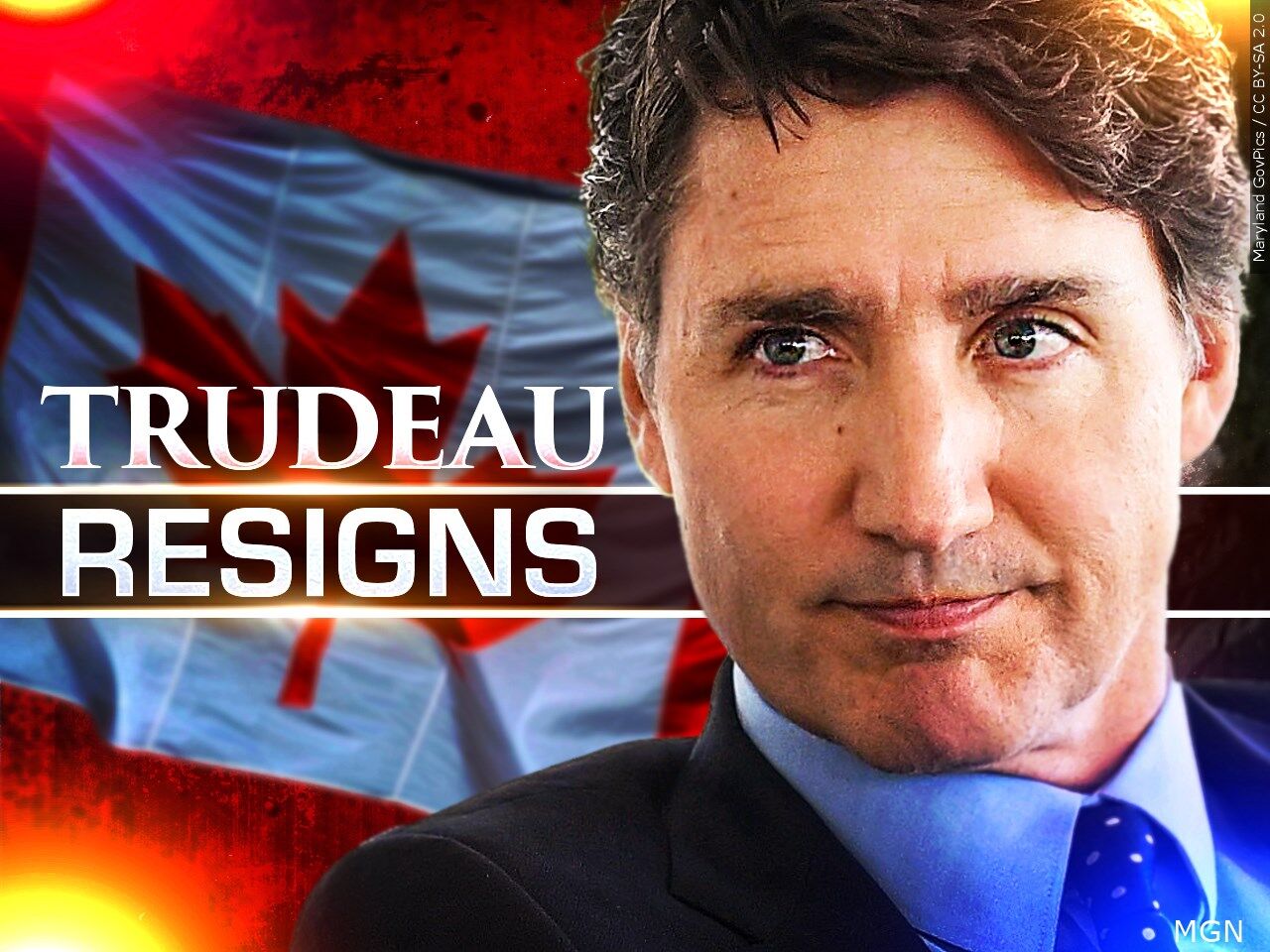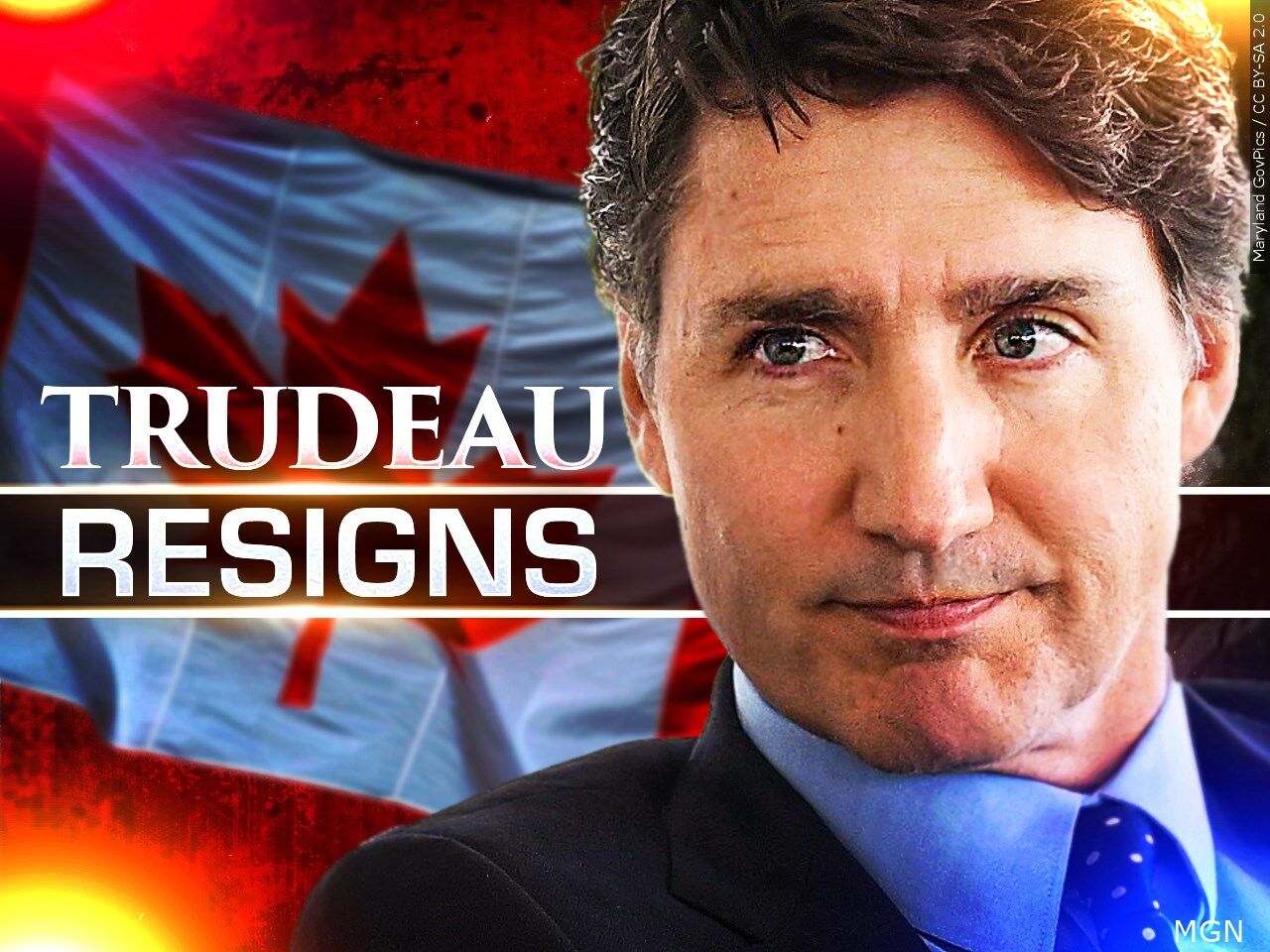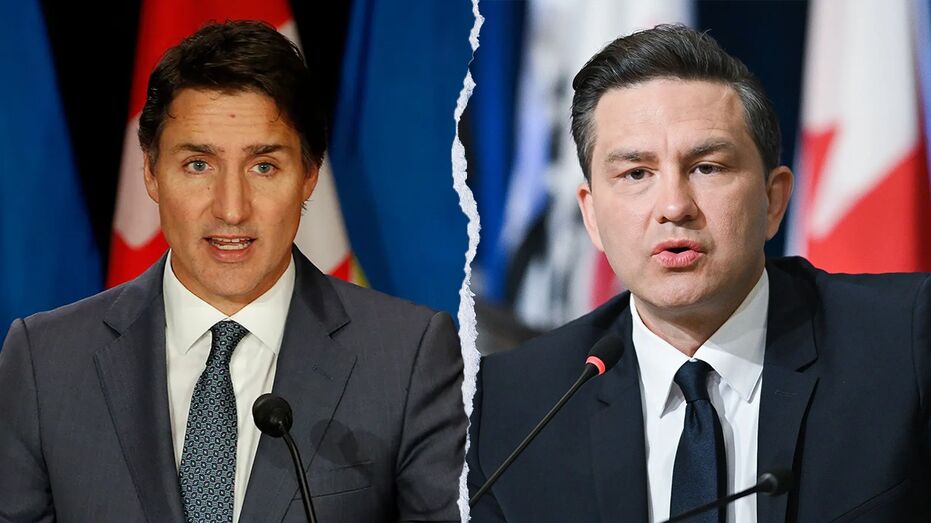
Trudeau Steps Down: Canada Faces Political Showdown
OTTAWA, Canada — In a significant shift in Canadian politics, Prime Minister Justin Trudeau announced on Monday that he will resign as leader of the Liberal Party, igniting the prospect of an intense political battle ahead. The upcoming contest will see his yet-to-be-named successor take on the burgeoning popularity of Pierre Poilievre, leader of the Conservative Party, who is now viewed as the frontrunner in the impending general election. Recent polling paints a stark picture, revealing that the Conservatives are currently capturing 47% of committed voters, while the Liberals lag behind at a mere 18%.
Pierre Poilievre: A Rising Star
Pierre Poilievre, a native of Calgary, has been a prominent figure in Canada’s political landscape since he was first elected to the House of Commons in 2004. Now 45 years old and having assumed the Conservative leadership in 2022, Poilievre has effectively tapped into the increasing voter discontent with Trudeau’s long-standing Liberal government, which has been in power since 2015.
Under Poilievre’s leadership, the Conservatives have embraced the slogan “Bring home the Canadian dream,” while launching strong criticisms of Trudeau’s policies. Poilievre has characterized them as a reflection of “authoritarian socialism,” asserting that they detract from the needs of everyday Canadians.
Controversial Comments and Criticisms
In a recent 90-minute interview with renowned podcast host Jordan Peterson, Poilievre described the Liberal approach as “horrendous, utopian wokeism,” targeting the party for benefiting a select elite rather than the working-class populace. “It’s egotistical personalities at the top,” he charged, calling for a government that prioritizes the needs of ordinary Canadians.
Trudeau, however, has pushed back against these allegations, drawing parallels between Poilievre and former U.S. President Donald Trump. Trudeau claims that Poilievre’s agenda mirrors Trump’s incendiary rhetoric, quipping that the Conservative leader seems intent on making Canada “great again,” an apparent nod to Trump’s iconic slogan. Despite the comparisons, Poilievre has distanced himself from certain aspects of Trumpism, particularly the notion of Canada becoming the 51st U.S. state, which he outright dismissed. “I have the strength and the smarts to stand up for this country,” he declared in a recent CTV News interview.
The Road Ahead: Key Challenges for the Conservatives
With a national election potentially on the horizon, the Conservatives appear well-positioned to contend for power. A no-confidence vote against Trudeau’s minority government, anticipated when Parliament reconvenes on March 24, could pave the way for a federal election. Polls indicate that widespread dissatisfaction with the Liberal leadership could translate into significant gains for the Conservative Party.
When addressing the crucial issue of U.S.-Canada relations, Poilievre acknowledged Trump’s combative negotiating tactics but emphasized his commitment to securing beneficial terms that would bolster both countries’ safety and economy. He criticized the current trade dynamic, arguing that Canada is being shortchanged by selling its oil and gas to the U.S. at discounted rates, deeming it a “ripoff.”
A Bold Agenda
Poilievre’s platform is ambitious, featuring an extensive economic and energy agenda aimed at turning the tide for Canada’s economy. This includes expediting the approval processes for new oil refineries, liquefied natural gas facilities, and nuclear energy projects. Furthermore, he has vowed to expand Canada’s electricity surplus to the U.S. while pledging a substantial crackdown on crime. “This will be the biggest crackdown on crime in Canadian history,” Poilievre promised, reflecting his commitment to enhancing public safety.
Immigration and Foreign Policy Shifts
On issues of immigration and security, Poilievre has indicated that his government would seek to renegotiate the Safe Third Country Agreement with the United States. This effort aims to close existing loopholes that permit illegal entries into Canada. Additionally, the Conservative Party has pledged to formally recognize Jerusalem as the capital of Israel, a significant shift from Canada’s current diplomatic stance, which maintains its embassy in Tel Aviv.
Aftermath of Trudeau’s Resignation
In the wake of Trudeau’s resignation, Poilievre released a statement asserting that “this changes nothing,” reaffirming his party’s commitment to its core principles. He elaborated that a Conservative government would “take back control” of pivotal issues such as borders, immigration, fiscal responsibility, and public safety. Highlighting his resolute vision for Canada, Poilievre declared, “We will secure borders, rearm our forces, restore our freedom, and put Canada First.”
As political dynamics shift, the stage is set for a critical period in Canadian politics. With impending elections on the horizon and a more assertive Conservative Party ready to capitalize on Trudeau’s departure, Canadians are bracing themselves for a robust debate about the future direction of their country. With core issues at stake, including economic stability, public safety, and international relations, the race for Canada’s leadership promises to be a dramatic and pivotal chapter in the nation’s political narrative.


















